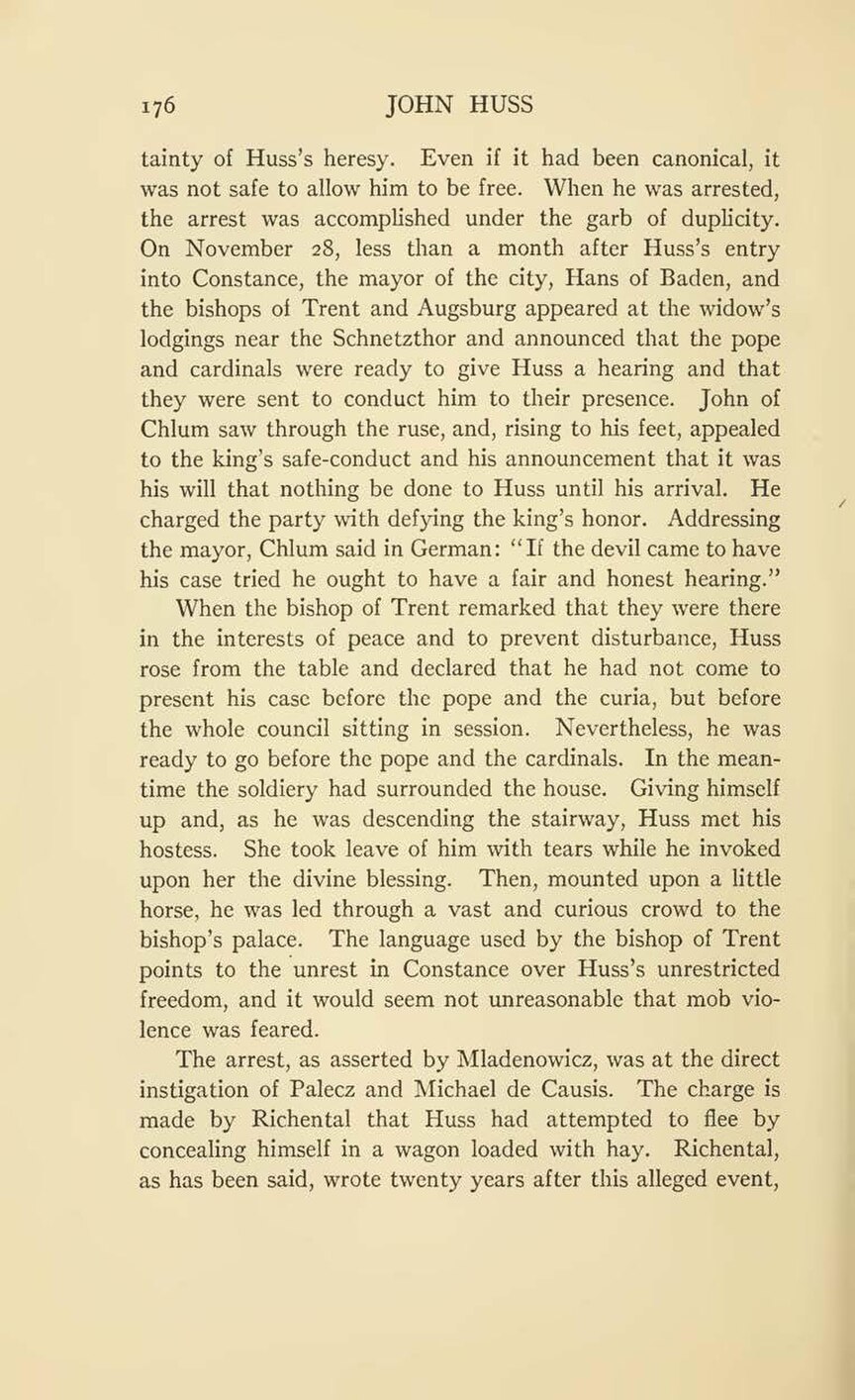tainty of Huss’s heresy. Even if it had been canonical, it was not safe to allow him to be free. When he was arrested, the arrest was accomplished under the garb of duplicity. On November 28, less than a month after Huss’s entry into Constance, the mayor of the city, Hans of Baden, and the bishops of Trent and Augsburg appeared at the widow’s lodgings near the Schnetzthor and announced that the pope and cardinals were ready to give Huss a hearing and that they were sent to conduct him to their presence. John of Chlum saw through the ruse, and, rising to his feet, appealed to the king’s safe-conduct and his announcement that it was his will that nothing be done to Huss until his arrival. He charged the party with defying the king’s honor. Addressing the mayor, Chlum said in German: “If the devil came to have his case tried he ought to have a fair and honest hearing.”
When the bishop of Trent remarked that they were there in the interests of peace and to prevent disturbance, Huss rose from the table and declared that he had not come to present his case before the pope and the curia, but before the whole council sitting in session. Nevertheless, he was ready to go before the pope and the cardinals. In the meantime the soldiery had surrounded the house. Giving himself up and, as he was descending the stairway, Huss met his hostess. She took leave of him with tears while he invoked upon her the divine blessing. Then, mounted upon a little horse, he was led through a vast and curious crowd to the bishop’s palace. The language used by the bishop of Trent points to the unrest in Constance over Huss’s unrestricted freedom, and it would seem not unreasonable that mob violence was feared.
The arrest, as asserted by Mladenowicz, was at the direct instigation of Palecz and Michael de Causis. The charge is made by Richental that Huss had attempted to flee by concealing himself in a wagon loaded with hay. Richental, as has been said, wrote twenty years after this alleged event,
